Posts Tagged ‘attorney’
“Worst Toys List” Warns of “Toy Weapons,” Choking Hazards and Hazards of Buying Toys Online
 The World Against Toys Causing Harm, Inc. has released its 41st annual “10 Worst Toys” list. This year, the Boston-based non-profit nominated toys which posed a choking hazard, had improper labeling and several “toy weapons,” including toy guns, sling shots and boomerangs.
The World Against Toys Causing Harm, Inc. has released its 41st annual “10 Worst Toys” list. This year, the Boston-based non-profit nominated toys which posed a choking hazard, had improper labeling and several “toy weapons,” including toy guns, sling shots and boomerangs.
The report said, “These toys, that resemble real weaponry, have no place in the hands of children. Evidence of the potential for tragedy is the recent death of a thirteen-year-old boy in Santa Rose, CA, who was fatally shot by a police officer who mistook his toy gun for a real weapon.”
In one case, the World Against Toys Causing Harm (or W.A.T.C.H.) caught a vendor selling slingslots on Amazon.com. Massachusetts law prohibits sale of slingshots and New Jersey, Rhode Island and Washington have similar laws.
W.A.T.C.H. urged consumers to be vigilant even if they are purchasing toys from a well-known brand name. It stated there have been 29 toy recalls in the past 12 months, which included over one million units of unsafe and defective toys in the United States and Canada. Of these, 20 recalls were initiated for toys which posed choking and ingestion risks.
This year’s list includes:
1) Army Force Automatic Rifle
Hazard: Realistic toy weaponry and inconsistent age recommendations on labeling and Amazon.com.
2) Big Rock & Roll Ball Pit
Hazard: Potential for impact injuries because children as young as 3-years-old are encouraged to climb inside a rolling, inflatable ball. W.A.T.C.H. also criticizes the package, which shows children playing with no parental supervision.
3) Max Steel Interactive Steel with Turbo Sword
Hazard: Potential for impact and facial injuries.
4) Disney Princess Backpack Fishing Kit
Hazard: Potential for chemical ingestion injuries. The cardboard insert warns the play item may contain lead which may be harmful if eaten or chewed.
5) Black Widow Folding Slingshot
Hazard: Potential for serious bodily injuries. Illegal to sell in Massachusetts and three other states. On Amazon.com, the product carried a “for 6 months and up” age recommendation.
6) Little Drummer
Hazard: Potential for ingestion and choking hazards. The drum is sold for babies as young as 12-months-old and the drumstick could block a child’s airway.
7) Boomerang “Throw & Catch”
Hazard: Boomerangs should not be sold to children of any age. Online toy recommendations and those on the package were also inconsistent. Online, the boomerang was recommended for children 16 months and up versus on the package, which stated it was not for children under 3 years.
8) Disney Baby Snow White
Hazard: Potential for choking hazards. The toy is marketed for children 2 years old and up, but has small detachable pieces, such as hair accessories.
9) Nerf N-Strike Jolt Blaster
Hazard: This toy is marketed for children age 8 and older. It has a dart which can be shot and potentially cause eye injuries. On the Hasbro website, the product description reads “Hide it in your pocket to maneuver in close to your enemy, then pull down the cocking handle to ready your shot. Pull the trigger and reload fast to win the day!”
10) The Spooner-Freestyle
Hazard: Potential for head and other impact injuries. This toy resembles a skateboard without wheels and is marketed for children age 3 and older. It does not mention use of safety gear and none is worn by children on the packaging.
Related:
10 Worst Toys of 2013, W.A.T.C.H.
Trouble in Toyland, U.S. PIRG.
Read More
Our Thanksgiving Wishes
 The lawyers and staff at Breakstone, White & Gluck wish you a very Happy Thanksgiving. We hope you enjoy this special time with family over a tasty meal (with plenty of leftovers!). We also appeal to you to take a few steps for safety’s sake:
The lawyers and staff at Breakstone, White & Gluck wish you a very Happy Thanksgiving. We hope you enjoy this special time with family over a tasty meal (with plenty of leftovers!). We also appeal to you to take a few steps for safety’s sake:
Drive Safely. AAA projects nearly 39 million U.S. travelers will drive 50 miles or more from home this Thanksgiving holiday weekend. If you can, avoid traveling during busy times such as Thanksgiving Eve. No matter when you drive, make sure you pay attention, monitor traffic reports, never drive when you are drowsy and start your trip with a full tank of gas.
Distraction-Free Driving. Commit to not use your cell phone while driving, especially in traffic congestion. Do not make phone calls or text while driving, the latter of which is against the law in Massachusetts. If you are using your cell phone as a GPS, have someone in the passenger seat handle your phone.
Smoke Alarm Batteries. Change your smoke alarm batteries, if you did not do so in early November, when Daylight Saving Time ended. About two-thirds of home fire deaths occur in homes with no smoke alarms or working smoke alarms, according to the Consumer Product Safety Commission (CPSC). You should test the batteries in all your home’s smoke alarms monthly.
Cooking Fires. The threat of a cooking fire triples on Thanksgiving, according to the CPSC. Stay in the kitchen while frying, grilling or broiling food. If you have to step away, turn off the stove.
Prevent Food Poisoning. A few reminders are regularly wash your hands in the kitchen, along with food surfaces and utensils. Separate raw meat and poultry from other food. Cook your turkey to a safe minimum internal temperature of 165 degrees. The Centers for Disease Control and Prevention also recommends cooking your stuffing in a separate dish outside the turkey. As for leftovers, make sure to eat within three or four days.
Keep Children Away From Food. Keep young children out of the kitchen while cooking. They could spill hot liquids or scald their skin on the oven.
Look for Hazards to Children. If you are at an unfamiliar home, do a visual scan of potential dangers for children. Keep them away from brick fireplaces, garage entrances and other hazards which could cause them injury.
Turkey Fryers. The National Fire Protection Association discourages use of turkey fryers. But if you use one, make sure you take it outside, a good distance from your home or any structure. Do not cook on the roof of apartment or condominium buildings. Dress so you are prepared to deal with hot oil spills and never leave the fryer unattended.
No Drinking and Driving. Do not drive after consuming alcohol. You risk seriously injuring yourself or someone else in a car accident. You could also be criminally charged.
This message is especially important on Thanksgiving. Mothers Against Drunk Driving (MADD) reports drunk driving deaths continue to increase during the holiday season. Many accidents occur on Thanksgiving Eve – a day it calls Blackout Wednesday – and the early hours of Thanksgiving Day. In 2010 alone, 174 people in the U.S. were killed during the Thanksgiving holiday weekend, in addition to many others who were injured.
Related:
14 Things to Know About Traveling on Thanksgiving Weekend in Massachusetts, North Reading Patch.
Boston Traffic Reports, Boston.com.
It’s Turkey Time: Safely Prepare Your Holiday Meal, Centers for Disease Control and Prevention.
Thanksgiving Home & Travel Safety Tips, Mass.gov.
Read More
Tips for Buying Safe Toys This Holiday
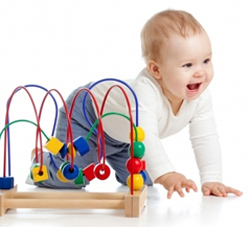 Many of us worry about buying unsafe toys during the holiday season. This concern has merit. In 2011 alone, more than 262,000 toy-related injuries were reported and another 13 children were killed while playing with dangerous toys, according to the Consumer Product Safety Commission (CPSC). This year, the CPSC reports toy recalls are down, but toy-related injuries have risen.
Many of us worry about buying unsafe toys during the holiday season. This concern has merit. In 2011 alone, more than 262,000 toy-related injuries were reported and another 13 children were killed while playing with dangerous toys, according to the Consumer Product Safety Commission (CPSC). This year, the CPSC reports toy recalls are down, but toy-related injuries have risen.
What to remember when you shop:
Choose Age-Appropriate Toys. Toys should have labels explaining age recommendations and other important warnings, such as “Flame retardant/Flame resistant.” The CPSC recommends avoiding toys with small pieces for children under age 3. They pose a choking hazard. For older children, avoid playsets with small magnets and balloons.
Buying Toys Online. Read instructions for use carefully. If you are buying from Amazon or eBay, remember those websites are only shopping forums. Take note of which company is selling the product.
Sharp Pieces.Toys designed for children under 8 years of age should not have sharp glass or metal edges.
Shattered Pieces. Set aside any toy that looks like it could easily shatter into small pieces and cause choking, cuts or other serious personal injuries.
Magnets.Toys with small magnets are dangerous to children. When children swallow one or more, the magnets can pull together and cause internal injuries, resulting in vomiting, abdominal pain and infection. In the past few years, children have suffered serious injuries and even death. In response, the CPSC has started a Magnets Information Center.
Loud Noises.Toy guns, tablets and talking dolls can damage a child’s hearing over time if used too closely.
Cords and Strings. Toys with long cords and strings can cause strangulation. Carefully consider this before you buy crib gyms, baby mobiles and swings. If a child can reach a baby mobile, it should be removed.
Batteries. Make sure an adult, not a child oversees battery charging for any toys or electronics. Avoid toys with small button-cell batteries, which can be easily swallowed and cause burning, esophagus pain and vomiting among other symptoms. Also be aware of other appliances, such as remote controls, which use these small batteries.
Sports Equipment. When you buy a sports-related toy, make sure you also buy the safety equipment, such as bike helmets for bikes. Children are required to wear bike helmets in Massachusetts until age 16 and if an accident were to occur, they are an important tool for preventing a lifelong head injury.
Related:
Holiday Toy Safety, Consumer Product Safety Commission.
Tiny Batteries Causing Big Health Problems for Kids, ABC News.
Read More
Remember to Change Your Smoke Alarm Batteries
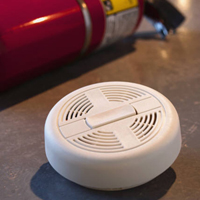 As Daylight Saving Time ends Sunday, we all have a very important chore: changing the batteries in our smoke alarms and carbon monoxide (CO) detectors. The good news is we have an extra hour in the day to get that chore done.
As Daylight Saving Time ends Sunday, we all have a very important chore: changing the batteries in our smoke alarms and carbon monoxide (CO) detectors. The good news is we have an extra hour in the day to get that chore done.
Smoke alarms provide necessary warning for us to act in a fire. Each year, more than 2,200 people die in unintentional home fires in the United States. The greater tragedy is nearly two-thirds of these deaths occur in homes with no smoke alarms or ones which do not work.
Here are a few additional suggestions for Boston and Massachusetts residents:
- You should have working smoke alarms on every level of your home, inside and outside sleeping areas.
- Purchase fire extinguishers for your kitchen, basement, work areas, and garage. Check them every few months to remind yourself of where they are, and make sure they are properly charged.
- Replace smoke alarms every 10 years and carbon monoxide detectors every five years.
- Talk to your family, roommates and landlord about your fire evacuation plan.
- Walk through your home and apartment and practice your fire evacuation plan. In an emergency, you and others may have to pass through unfamiliar areas.
- If you are a Boston college student renting an apartment, make sure you and your roommates are following house rules for cooking and that no one is smoking in the living area.
- Report any potential fire hazards to landlords promptly, including blocked access ways and electrical irregularities.
Attitudes are Changing on Allowing Children to Play Football
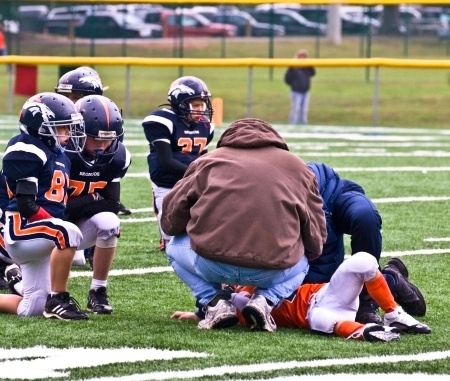 American attitudes about football are changing–even though the sport remains as popular as ever, more adults are re-thinking whether their children should risk head injuries by playing football.
American attitudes about football are changing–even though the sport remains as popular as ever, more adults are re-thinking whether their children should risk head injuries by playing football.
A new study by HBO Real Sports and Marist College Institute for Public Opinion surveyed more than 1,200 adults by phone in July and reports most have learned about the connection between concussions suffered while playing football and long-term brain injury. As a result, one in three adults say they would be less likely to allow their own son to play if given the choice.
Ultimately, 85 percent would let their son play, another 13 percent would not and 2 percent are unsure (The study did not report on how respondents would feel about letting their daughters play).
Seven out of 10 Americans think the benefits of playing outweigh the risk for injury. Also, 74 percent of Americans think football is a good way to build character and boys should be encouraged to play.
One notable point is Americans seem to be placing trust in coaches, parents and even players themselves. Some 30 percent say they are less concerned about the risk of long-term brain injury because these individuals are more informed now and can take greater precautions.
Concussion Prevention for Student Athletes
The majority of states have passed concussion prevention laws for high school athletes. Massachusetts passed a law in 2010, which requires students, parents and coaches to receive annual training on recognizing and treating concussions. Student athletes who are suspected of having suffered a concussion must be removed from play and receive a doctor’s medical clearance before returning. Schools must also report concussions to the state Department of Public Health. The law covers high school and middle school athletes in football, soccer and all other sports.
Today, 49 states have concussion prevention laws. The only exception is Mississippi. Washington was the first state to pass such legislation. In May 2009, the state passed the “Lystedt Law,” named after 13-year-old Zackery Lystedt suffered permanent brain injury in 2006 while playing in a junior high school football game after suffering a concussion.
NFL Settlement
In August, after the survey was conducted, the National Football League (NFL) agreed to settle a class-action lawsuit brought by more than 4,500 players and their families.
The settlement, the result of court-ordered mediation, includes $5 million for men with Alzheimer’s disease, $4 million for those diagnosed after death with a brain condition called chronic traumatic encephalopathy and $3 million for players with dementia. The suit alleged the league concealed what it knew about concussions among its players and failed to protect them from repeated hits in the game. Plaintiffs included Hall of Famer Tony Dorsett, Jim McMahon and the family of former New England Patriots’ start Junior Seau, who committed suicide in 2012.
Youth Football Enrollment Still Increasing
Pop Warner is the nation’s largest youth football league, serving over 250,000 children between the ages of 5 and 15. In recent years, the league has implemented its own safety rules. One rule limits the amount of contact players have to one third of practice time. Another is “when in doubt, sit it out,” when a concussion is suspected.
But enrollment has not decreased as public awareness has grown about concussions and football, officials recently told CNN. Enrollment has increased one percent annually for the past ten years, through 2012.
Related:
Youth Football Takes Hard Hit… One-Third of Americans Less Likely to Allow Son To Play Football because of Head Injury Risk, HBO Real Sports/Marist Poll.
Read More
Household Safety: Check Old Appliances Before Winter
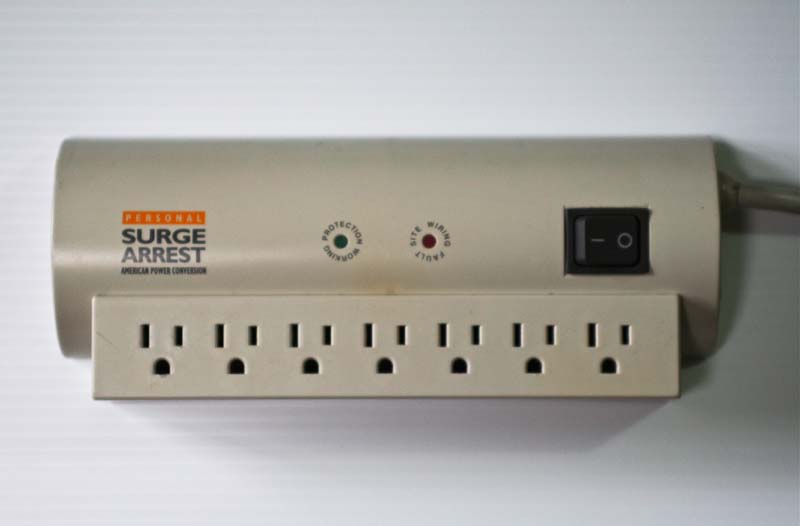 Now, as we head into winter, is a good time to test your home’s smoke alarms, check your appliances and inspect your electrical outlets and cords.
Now, as we head into winter, is a good time to test your home’s smoke alarms, check your appliances and inspect your electrical outlets and cords.
First, a good resource is the Consumer Product Safety Commission (CPSC) website, where you can search for recall news about products you may own. Recently, there have been several recalls involving products posing serious fire hazards.
One example is Schneider Electric IT Corp. recalled 15 million APC Surge Arrest surge protectors in early October. This followed 700 reports of property damage, including $916,000 in fire damage to a home and $750,000 to a medical facility. Another 13 reports were injuries, including smoke inhalation and contact burns. Another example is Gree Electric Dehumidifiers, which recalled 2.2 million dehumidifiers in the U.S. last month, after its products caused 46 fires and $2.15 million in property damage.
You can review the CPSC website to make sure you have no recalled products in your home. You can also take a look around your home for faulty cords or products.
Preventing Home Fires in the Winter
During a typical year, there are over 26,000 home electrical fires in this country, according to the U.S. Fire Administration. December and January see the most electrical fires. We share a few tips for preventing these fires:
1) Check your smoke alarms before the season.
2) Regularly check your electrical appliances and wiring. Replace any old or damaged cords; do not try to repair them.
3) Replace any appliance you feel may not work properly. If you do not want to replace it, call a repair service or visit the store where you purchased the product. Check electric space heaters every year as a rule.
4) Buy appliances which have the label of a recognized testing laboratory, such as UL.
5) Avoid using extension cords.
6) Use only surge protectors or power strips that have internal overload protection and have been tested by a national laboratory.
7) Keep clothes and flammables at least three feet away from all portable electric space heaters.
8) Use light bulbs that match recommended wattages for lamps.
9) Bring in an electrician if you are experiencing flickering lights or other problems.
Related:
Electrical Home Fire Safety, U.S. Fire Administration
Schneider Electric Recalls APC Surge Protectors Due to Fire Hazard, Consumer Product Safety Commission.
Read More
New Safety Standard Approved for Baby Cradles and Bassinets
 Bassinets and cradles will soon have to meet a federal standard for safety.
Bassinets and cradles will soon have to meet a federal standard for safety.
On Sept. 30, the Consumer Product Safety Commission (CPSC) announced it has approved a new mandatory standard in a 4-1 vote. Bassinets and cradles have long had no mandate, despite hundreds of reports of personal injuries and deaths over the years. Meanwhile, full-sized cribs and other baby furniture have faced regulation.
From November 2007 through March 2013, the CPSC reported 132 deaths involving bassinets and cradles. The agency received a total of 426 incident reports.
Bassinets and cradles are intended for infants up to 4 or 5 months old, but some organizations, such as Consumer Reports, have recommended parents move directly to cribs because of safety concerns and their short life.
Children have been injured when bassinets and cradles collapse in the middle or tip over. Infants can also suffocate by rolling into pillows, blankets or a mattress in the cradle of the bassinet. One danger has been swinging or hammock-style cradles which are suspended from a frame. In 2009, Amby Baby USA recalled 24,000 Amby Baby Motion Beds after two infants died in them.
For years, manufacturers have been encouraged to meet the voluntary standards set by the ASTM International (formerly known as the American Society for Testing and Materials). These will be incorporated into the CPSC’s new standard, but the CPSC has recommended five modifications. They include changing the pass/fail standard for mattress flatness, creating an exemption to the mattress flatness requirement for bassinets that are less than 15 inches across and making the dummy used to test stability smaller.
Read more about the new safety regulations for bassinets and cradles.
Buying a Safe Bassinet or Cradle
If you are a parent buying a new bassinet or cradle, our Boston product liability lawyers share these tips:
New standard is not effective yet. The final rule will be published in the Federal Register, then take effect six months later. But manufacturers have an additional 12 months after that before they must comply.
Do not use past 5 months old. Follow the manufacturer’s guidelines on the appropriate weight and size of babies. The CPSC advises use stop at 5 months of age or when babies can push up on their hands and knees.
Can it stop swinging? Make sure swinging cradles can made still once a baby is asleep.
Make sure it is stable. Check screws and bolts periodically to see if they are fastened. If the product’s legs fold for storage, make sure they have solid locks so your child will not fall.
No pillows. Do not use pillows. Make sure the mattress and padding fit snugly. Avoid purchasing a baby product with long strings, bows or other accessories which a baby can grab onto.
Read More
Massachusetts Texting While Driving Ban: 3 Years Today
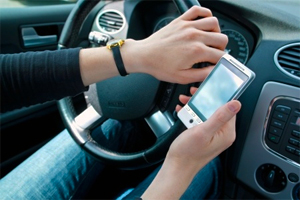 Drivers may claim they are not texting behind the wheel. But Massachusetts State Police say that at least 440 of them were doing just that in June.
Drivers may claim they are not texting behind the wheel. But Massachusetts State Police say that at least 440 of them were doing just that in June.
State Police cited these drivers over three weeks in the Merrimack Valley, part of a federally funded enforcement grant involving 12 communities. Another 509 drivers were ticketed for impeded operation, after being caught engaged in distractions such as reading and grooming while driving.
The numbers are notable as today marks three years since the Safe Driving Law took effect in Massachusetts, placing new restrictions on drivers under 18 years old and banning all drivers from texting while driving. Three years later, how well are you complying with the law?
The law bans texting by drivers, including reading, writing or sending messages. This includes text messages, e-mails and messages sent through social media sites such as Facebook and Twitter. Drivers cannot text while driving or sitting at red lights, intersections or on other public ways. Texting while driving is a primary offense, meaning police can pull drivers over when they suspect the behavior.
The law also covers more than cell phones. It bans communicating through any device while you are driving, including tablet computers and laptops.
Fines for Texting While Driving in Massachusetts
Drivers are permitted to talk on cell phones in Massachusetts. But operators under 18 years old are banned from all cell phone use, a measure passed as part of the Safe Driving Law.
One area of confusion with the texting while driving ban has been the use of GPS, especially GPS apps in smartphones. The Registry of Motor Vehicles reported back in 2010 that such use was not a violation of the law, though State Police said they would use discretion with GPS units and could cite drivers for “unsafe operation.”
Across the country, 41 states ban texting while driving. Fines in Massachusetts drivers are $100 for the first offense, $250 for the second and $500 for third and all subsequent acts. When a driver causes serious injury or death as a result of texting, they can also face criminal charges.
One Massachusetts newspaper has called for more. In today’s edition, the Worcester Telegram & Gazette noted that drivers who violate the law do not face any impact on their license or auto insurance rates and called on the Legislature to strengthen laws.
“To create a true deterrent, lawmakers must strengthen the penalties, particularly for second and subsequent offenses,” the Telegram & Gazette wrote.
Maybe the Legislature will review the law. Enforcement will continue. State Police have launched Phase 2 of their “Text with one hand, ticket in the other,” campaign in the Lowell and Merrimack Valley area.
But the discussion goes beyond a $100 ticket to safety and responsibility on the road. Any cell phone use that takes a driver’s attention off the road is negligent and can cause a car accident resulting in serious injuries or death. So we ask again. Have you complied with the law? Are there are additional steps you could take?
If you have any doubts about safety, or the terrible effects three seconds of inattention might bring, please watch this video: “From One Second To The Next,” by Werner Herzog. It is part of AT&T’s It Can Wait campaign.
Related:
Texting While Driving Crackdown Nets 440, Lowell Sun.
Tougher penalties needed, Worcester Telegram & Gazette.
Safe driving law applies to more than just texting behind the wheel, The Boston Globe.
Read More
Attorney Marc Breakstone Comments in Massachusetts Lawyers Weekly Article: “Too Much Information? Lawyers Split Over Online Juror Surveillance”
 Massachusetts Lawyers Weekly writes this week about the divide among lawyers on monitoring social media use and Internet activities by jurors. It is a common practice, especially in Massachusetts, which does not allow attorney-conducted voir dire. There have been no ethical opinions on the subject issued in Massachusetts. Not all attorneys are comfortable with it, but some consider it fair.
Massachusetts Lawyers Weekly writes this week about the divide among lawyers on monitoring social media use and Internet activities by jurors. It is a common practice, especially in Massachusetts, which does not allow attorney-conducted voir dire. There have been no ethical opinions on the subject issued in Massachusetts. Not all attorneys are comfortable with it, but some consider it fair.
“I see no ethical issue. It’s in the public domain,” says Marc L. Breakstone, a Boston personal injury and medical malpractice lawyer with over 25 years of experience. “The public domain is the public domain. There’s certainly nothing wrong with checking the Internet. There would be a lot wrong with interacting with jurors or doing anything on the Internet to influence jurors with respect to the case.”
Breakstone later adds, “Trial lawyers are starving for information about jurors. The Internet is a potential treasure trove of information. Why wouldn’t a diligent trial lawyer inquire of that source? I would rather have voir dire, but without voir dire, this is all I can do.”
Read the full article online or view the PDF version.
Two Million Dehumidifiers Recalled for Posing Fire Risk
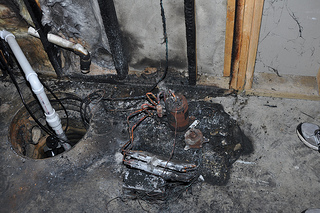 If you own a dehumidifier, there may be a refund heading your way.
If you own a dehumidifier, there may be a refund heading your way.
Last week, 2.2 million dehumidifiers were recalled in the U.S., along with 52,500 units in Canada. The dehumidifiers pose a fire hazard and can overheat, smoke and catch on fire, according to the Consumer Product Safety Commission (CPSC). Consumers are advised to stop using them immediately and contact the manufacturer Gree Electric for a refund.
Gree Electric issued the recall for multiple brand names after receiving 165 incident reports, including 46 fires and $2.15 million in property damage. No injuries have been reported.
The dehumidifiers were sold under these brand names: Danby, De’Longhi, Fedders, Fellini, Frigidaire, Gree, Kenmore, Norpole, Premiere, Seabreeze, SoleusAir and SuperClima. The units sold for $110-$400 in various sizes and colors, from 2005 through last month.
The defective dehumidifiers were sold at Home Depot, Kmart, Lowe’s, Menards, Mills Fleet Farm, Sam’s Club, Sears and other U.S. and Canadian stores. They were also available through Amazon.com.
See a full list of the model numbers and how to obtain a refund.
One of the last major dehumidifier recalls came in 2011. LG Electronics recalled 98,000 Goldstar and Comfort-Aire dehumidifiers after they were linked to fires causing over one million in property damage. A home in Hudson, Mass. sustained $183,000 in fire damage. Homes were also damaged in Pennsylvania, Minnesota, Indiana, Ohio and New Jersey.
The Goldstar and Comfort-Aire dehumidifiers were first recalled in December 2009 following 11 incidents, including four fires. The company re-issued the recall in 2010 and 2011after receiving 16 additional reports of smoke and fire and nine significant fires. No injuries have been reported.
Check Your Home Appliances for Winter
The recall provides a good reminder to check your household appliances for fire hazards before the winter.
1) Make sure your appliance cords are covered and not frayed or ripped anywhere.
2) Check your smoke alarms and carbon monoxide detectors. You should have a smoke alarm in every bedroom and a carbon monoxide detector on every floor.
3) Check the CPSC website. Recently, the CPSC has announced recalls involving floor lamps sold at Target and ceiling lamps. Both products were recalled for posing a fire hazard.
Related:
Home Fires Prompt Dehumidifier Recall Reannouncement from LG Electronics, Consumer Product Safety Commission.
Target Recalls Threshold Floor Lamps Due to Fire and Shock Hazard, Consumer Product Safety Commission.
Ceiling-Mounted Light Fixtures Recalled by Dolan Designs Due to Fire and Shock Hazards, Consumer Product Safety Commission.
(photo credit: Consumer Product Safety Commission flickr)
Read More

